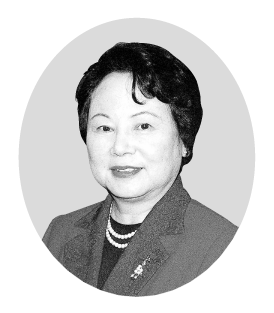| Home > Policy > White Paper, Notice, Announcement > White Paper > Japanese Government Policies in Education, Culture, Sports, Science and Technology 2002 >Foreword | ||

As we now enter the 21st century, what form of country should we aim for?
In order for Japan to develop as a truly affluent and mature country and to make an international contribution, I believe that it is extremely important for us to strive for the realization of "an education and culture oriented nation" and "a nation based on the creativity of science and technology."
The exact key to achieve this is "human" power. Therefore, we are now strongly promoting educational reform with a view to cultivating students with richness and robustness of spirit who can open up a new era, while keeping an eye on the educational model most befitting the new century. We are also implementing various measures to promote the science and technology which are not only the driving force behind the development of Japan but also important in solving various global problems confronting mankind. Furthermore, we are pouring our efforts into the promotion of sports, culture, and arts, that contribute to people's rich spirit and health.
Last August, I have proposed the "Human Resources Strategy Vision" in order to clarify the direction of comprehensive policies, including the above measures. It is designed to cultivate true human power that aims for a shift "from uniformity and passivity to independence and creativity." We intend on an all-out effort to achieve the objective mentioned at the beginning by the timely and appropriate implementation of necessary measures in line with the vision.
We cannot overemphasize the importance of elementary and secondary education as the basis of character development. In this connection, we want to note that Japanese elementary and secondary education has entered a new era. The new Course of Study implemented in its entirety at elementary and lower secondary schools starting with the current fiscal year, and a five-day school week, which had been implemented by stages, is now firmly established.
The educational reform that we are now promoting is aimed at cultivating "Academic Ability" and "Richness in Mind" in each and every child so that they can get through the new era. What we mean by "Academic Ability" is not simply cramming knowledge but having the intellectual ability "to learn basics firmly, and think and act on one's own." For this reason, we intend to dedicate all our resources to achieve the purpose of the reform.
As education is often likened to "formulating a national policy on a long-range basis," how education is approached has strong bearing on the future of Japan.
The Ministry of Education, Culture, Sports, Science and Technology publishes "Japanese Government Policies in Education, Culture, Sports, Science and Technology" every year in order to present new developments in this area to the public.
As the feature of the 2002 edition, we have taken up "School in the New Era - Elementary and Secondary Education Reform in Progress." I hope that this White Paper will enhance your understanding of the various measures for rapidly changing elementary and secondary education that the Japanese Government has implemented in order to cultivate children strong enough to live the 21st century.
Part II describes the main developments of the Ministry's policies in the areas of education, science and technology, culture, and sports, as well as overall trends in educational reform.
I hope that this White Paper will be utilized widely by all people who are interested in the Japanese Government's overall policies concerning education, culture, sports, science and technology. Atsuko Toyama Minister of Education, Culture, Sports, Science and Technology
February 2003
| Back To Top | MEXT HOME |